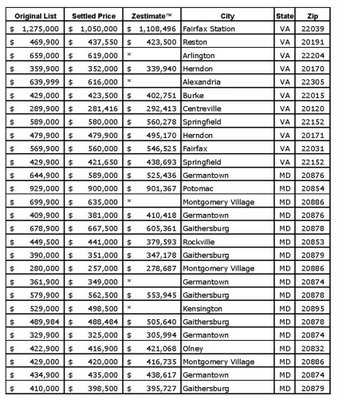The truth is that the proper time to buy is ANY time when your “DNA” is right.
That’s regardless of what the experts say, particularly the harbingers of impending turndowns or stagnations. (Many doom-shouters predict four or more major market slumps for every one that actually comes to pass.).
Those last three words, incidentally, are significant ones, because all market changes literally come to pass; they never come to stay indefinitely. If you haven’t lived through these phenomena in the past, just ask someone who has.
Given the fact that real estate historically “goes up” in the long run, even those buyers who find that they’ve overpaid for a home need only wait for the price tide to rise in order to refloat their economic boat. Meanwhile, chances are good that the “bottom fisherman” who held off in anticipation of an elusive bargain almost certainly missed opportunities to own a desirable home and may later have to settle for something less and/or pay even more.
About that DNA reference: It is one of those acronyms (home-made in this case) that are so popular these days, but it’s in no way related to the crime show plots so prevalent on the TV screen. Rather, it points to three elements that, when they are present, not only suggest that a home purchase is appropriate, but mandate immediate action – notwithstanding negative news from the pundits:
- The “D” stands for desire --- what you and your family really want in terms of lifestyle. A home is more than just an acquisition of land and building materials. It’s also more than just where your family lives. It is HOW you live as well. This sets homes apart from other forms of investment, wherein the price paid may be a paramount consideration. The “desire to acquire” a new lifestyle must be a major force in the purchasing procedure, and if it is present, it should be given the highest priority. Failing to do so will invite later regrets, which are much harder to live with than, perhaps, slightly elevated mortgage payments.
- “N” means that the home must satisfy practical needs --- such as space, safety, community services, schools and creature comforts, including a reasonable degree of luxury. Don’t discount pride of ownership in this category! Human nature being what it is, when the desire is strong enough, needs will be either manufactured, rationalized or both, but the practical side should always be recognized.
- “A” stands for an ability to pay for the subject property. Regardless of how passionately a home is desired or how badly needed, unless the price and terms are manageable, the transaction is simply not doable. That said, and getting back to an earlier comment, when the home is wanted with sufficient level of intensity, the budget will be s-t-r-e-t-c-h-e-d to the absolute limit. (A cautionary note: The “A” factor should be explored in depth before the actual house-hunting begins; do this to avoid the pain of satisfying both desire and need, only to find that the dream is beyond reach.)
Those who are persuaded by the pundits to “wait an see what happens” are in imminent danger of joining the forlorn (and crowded) ranks of those who now observe present prices with dismay, ruefully commenting, “why, I remember when I could have bought those places for (whatever $), or even less!” (Ah, but they DIDN’T --- and there’s the point!)
If you find yourself on the fence, be mindful of a genuine American pundit (and poet) names John Greenleaf Whittier, who wrote: “Of all sad words of tongue or pen, the saddest are these: “it might have been.”
Thinking about a change? Check out your “DNA,” then go for it!

